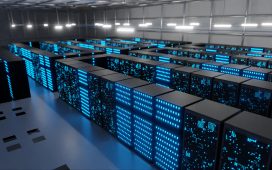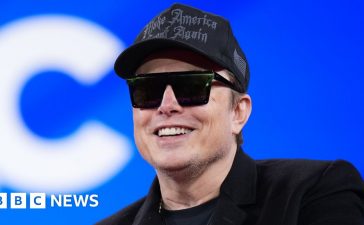The 6-year-old start-up is a manufacturer of fibre-optic transceivers, a device used in data centres to transmit data over fibre optic cables. The company was acquired last November by US networking equipment giant Lumentum for US$750 million.
Part of the appeal of the company’s hardware – which it manufactures in Dongguan, in China’s southern Guangdong province, and Southeast Asia – is a global AI boom that has brought greater demand for higher bandwidth and computing power, Cloud Light founder and CEO Dennis Tong told the South China Morning Post in an interview on May 17.
“When we talk about AI and machine learning, most of us think of Jensen Huang standing on the stage holding a GPU chip,” Tong said, referring to the founder and CEO of semiconductor juggernaut Nvidia, which makes the powerful graphics processing units (GPUs) on which the AI industry has come to rely for training models.
“What not all of us realise is … that tremendous computing power, it’s not enabled by one single chip. It’s actually enabled by connecting hundreds of these chips together,” Tong said. “That’s our product, the interconnect product.”
Cloud Light has been growing revenue at about 50 per cent annually for the last three years, according to Tong, who said he thinks the company will “continue to do so for at least a few more years”.
The firm brought in US$200 million in revenue in the 12 months through October last year, San Jose-headquartered Lumentum said in a November statement announcing its acquisition of Cloud Light.
The acquisition will give Cloud Light “a bigger platform for faster growth”, according to Tong. Through Lumentum, it now has a much bigger sales force in North America and access to a manufacturing facility in Thailand, he said.
The Thai manufacturing base will help Cloud Light “more effectively cope with” the increased need to diversify geographically, according to Tong.
Enterprises have ramped up efforts to ensure supply chain security in recent years after pandemic-fuelled upheaval and amid intensified geopolitical risks.
Hardware start-ups traditionally prefer to stick to one manufacturing location until they reach a certain size, according to Tong.
“I think the latest situation forces us to set up more than one location before [growing] to a certain scale,” he said.
The company will continue to operate and expand its facility in China to serve local market needs, Tong added, but it will grow the Thailand facility to serve other markets.
“I think that’s the reality that every company has to cope with,” he said.
For Cloud Light, Hong Kong remains its “research and development centre of gravity”, according to the founder. The city has the unique advantage of “top-notch engineering schools” and being an international financial hub that gives entrepreneurs access to capital.
The city in recent years started a drive to transform itself into an innovation and technology hub, aligning with calls from Chinese President Xi Jinping, who visited the HKSTP in 2022.
Hong Kong has made progress in this pursuit with the presence of companies like Cloud Light, but it is “not quite there yet”, as “there’s a lot of work to do”, HKSTP CEO Albert Wong said on Thursday.
Hong Kong, with about 30,000 to 40,000 people working in R&D, including in universities, should aim to grow the figure to 200,000 in the next few years, he added.












